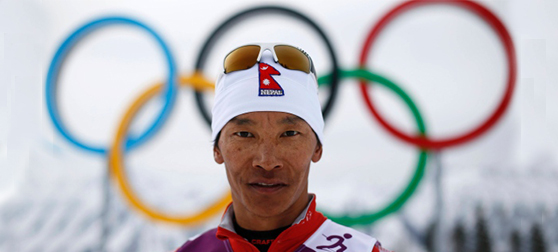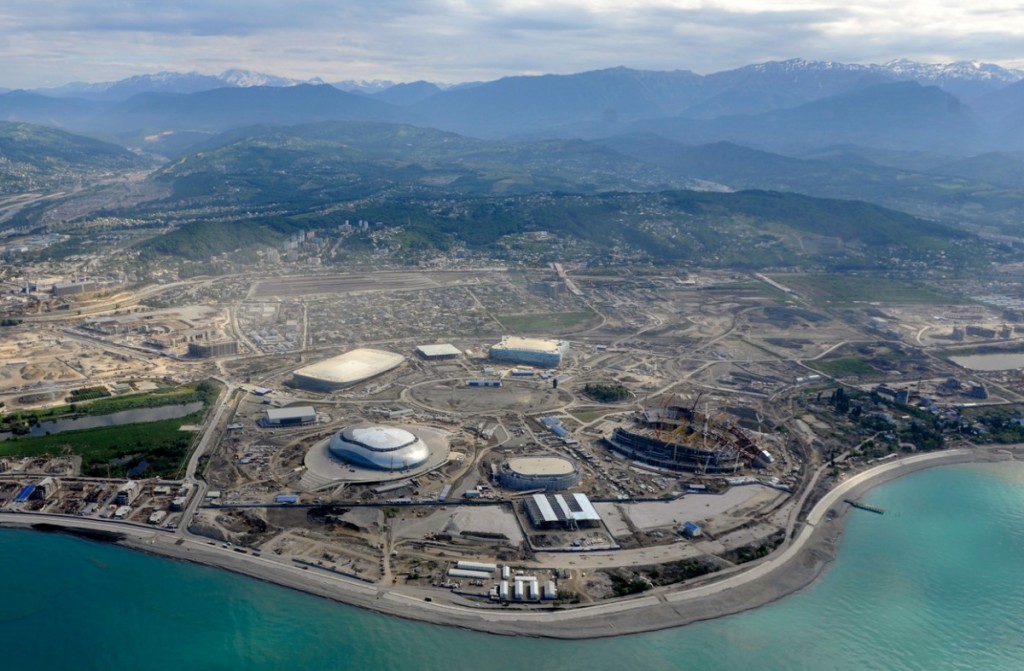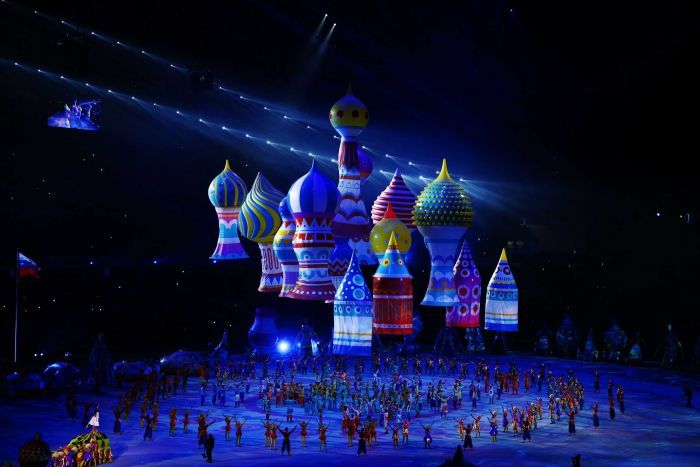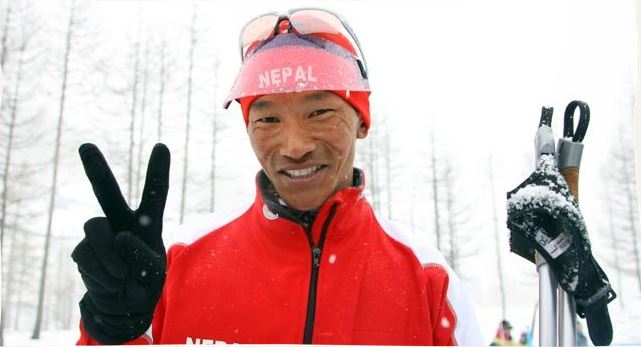I have to be honest. I hardly even realized that 2014 was a Winter Olympic year until the regular prime time TV advertising campaign began.
I should have known. Last May, I met with a group of international visitors from around the world who sought to better understand how new approaches to global engagement through global pro bono and volunteerism could help them enhance their local economies once they returned home. One of the participants, a young Russian woman, approached me with a business card and a beautiful blue patchwork spiral notebook. “For you,” she said. “A gift.” I looked at the notebook. Crafted of high-quality materials, it felt sturdy in my hands. I smiled, and thanked her for her thoughtfulness.
It wasn’t until NBC started airing its prime time advertisements featuring that same blue patchwork pattern that I finally put two and two together. While the rest of the world had been minding their own business, Sochi—and all of Russia—had been busy preparing for the spotlight.
Now, with the final round of figure skating (by far America’s favorite winter sport) come and gone, Sochi 2014 is over. Yet, its legacy lives on.
If You Build It, They Will Come
To host a major multinational sporting event such as the Olympics is to undertake a massive investment in infrastructure. The 2010 Winter Olympics in Vancouver resulted in $603 million in infrastructure investment, $1.84 billion in operational costs, and $902 million in security costs. The games were estimated to have increased GDP by $2.5 billion, creating 45,000 jobs and contributing an additional $463 million to the tourism industry.
Canada, a developed, thriving economy with a booming natural resource sector, is an excellent demonstration of the massive financial investment (and corresponding financial effects) of hosting a national sporting event like the Winter Olympics. Yet, such results are even further amplified in developing markets such as South Africa, Russia, and Brazil. With pressure to impress at the first World Cup hosted in the Africa continent, South Africa spent, by some estimates $3 billion on infrastructure development. According to the FIFA World Cup Country Report, the South African government spent $1.3 billion improving road, rail, and air transit. Brazil, which will host the World Cup this year, estimates that the event will cost Brazil $14 billion. Brazil expects to spend another $14 billion on construction, renovation, and operations dedicated to the 2016 Summer Olympics two years later, a number not off-target from the $14 billion spent on the 2012 London Games.
Russia, originally projected to spend $12 billion on the Sochi Games, saw the financial investment balloon to $50 billion. Plans for construction in Sochi, a tourism destination known well by Russians, but unfamiliar to many people outside the country when it was selected to host the Winter Games, were herculean. In addition to the expected construction of winter-sport venues, the games required 40,000 new hotel rooms in Sochi—about half as many as on the entire island of Manhattan.
After all the money is spent, what is the future economic potential? How can Sochi cope with its now-unoccupied 40,000 hotel rooms? However, these types of investments invoke—or accelerate- technology shifts that fundamentally increase a nation’s capacity. Traveling to South Africa in 2012 and again in 2013, I witnessed the value of the roadway renovations made as a result of the World Cup investments. A commute from Pretoria to Johannesburg that had previously taken upwards of an hour and a half could now be completed in less than 45 minutes.
Where there is significant money, there is both significant opportunity and temptation. Massive, unprecedented injection of capital attracts both honest businessmen and hardworking laborers, as well as the unscrupulous. Sochi had plenty of reports and accusations of both, but there is no doubt: hosting a major global sporting event drives economic growth—and national pride.
Around the World in 16 Days!
For three weeks every two years, the world turns outwards on itself and embraces the power of national identity. Never are we so American—or Swiss, Dutch, Norwegian, or Russian—than in the midst of the Olympic Games. Few moments spur such national pride and few opening ceremonies have so indulgently embraced a historical legacy as this year’s Sochi Games. Both mystical and magical, the performance of each individual was impeccably rehearsed and nearly flawlessly executed.
The Olympic host is given full discretion to design and choreograph the opening ceremony to suit their national preference, the one appropriate moment in which a country can engage more than 3,000 performers to act out the history of its civilization for a global audience. Such cultural explanation paired with national pride offers an unusual opportunity to better understand our individual cultural heritage within a global context. Regardless of how we experience the games, whether it’s as an athlete, a coach, a fan, or a spectator on TV, we come away from the experience that much more aware of the communities that surround us in a globalized world.
In its nascent state of development, it was easy for Western journalists and spectators to make fun of the city’s lack of preparation. Yet, the scornful tone brought into focus the fact that life realities are dramatically different in many parts of the world. One photo in The Huffington Post’s Sochi Olympics 2014: 15 Epic Hotel Fails In The ‘Russian Riviera’ depicted a sign requesting that guests place used toilet paper in a nearby trash can rather than flushing it down the toilet. Although it may seem unusual to Americans, this is a common practice in many water-constrained countries.
Being exposed to the realities of an emerging market, like Russia, as compared to more developed countries simultaneously helps us better understand the world at the same time that we better understand ourselves. During the opening ceremony modified broadcast, which aired in prime time on February 7, Chevrolet aired a delightfully global commercial promoting the Chevy Cruze with the tagline: Proof we’re not so different after all. Indeed.
Not the Winning, But the Taking Part
The ancient Olympics were thought to have been established in 776 BC; the first games hosted in modern times under the International Olympic Committee were held in Athens in 1898. Soon thereafter, in 1914, a Winter Games was established. Pierre de Coubertin, the founder of the modern Olympics, believed in the doctrine of ‘universalism.’ He said, “It is not the winning, but the taking part that counts.” In the 2012 London Games, 10,500 athletes represented 204 nations. By contrast, the Winter Games are much smaller. This year, Sochi boasted 6,000 athletes from 88 countries, of which Russia fielded 232, slightly surpassing the 230 American Olympians.
While a number of African countries are highly competitive in many summer Olympic sports, African countries are typically the most underrepresented in the Winter Olympics. The main reason for this is obvious—the African continent is almost entirely devoid of snow, and most nations lack the resources needed to simulate and maintain effective winter training conditions. Moreover, the financial means required to field a competitive winter sports team are extensive. As a result, few countries compete in the Winter Games. This year, only Morocco, Togo, and Zimbabwe were represented at Sochi. Special effort was made to include Timor-Leste, one of the world’s newest nations, in this year’s games. And, Jamaica’s bobsled team, an institution since its popularization through Cool Runnings, was represented as well.
Perhaps the most compelling story from this year’s Winter Olympics is that of Nepalese Dachhiri Sherpa, a 44-year-old bricklayer, who temporarily left his job to train for the Men’s Cross-Country Classic. He wasn’t motivated by medals or money. Instead, he sought to inspire the youth of Nepal to take pride in their nation’s participation in an important sporting event. Even before the games began, Sherpa expected to finish last, but he hopes that his participation will trigger the patriotic pride of his nation, making young children aware of the games so that they will set out to one day become winning Olympians themselves. In his own words, “The placing is not important if I can teach young people in Nepal about the Olympic spirit.”
National pride and international sportsmanship met head on, seeding economic growth and together, building a lasting legacy in capital and example for the next generation. It wasn’t perfect, but it was progress.
Alicia Ness
Alicia Bonner Ness (@AliciaBNess) is the editor of the The New Global Citizen, where she seeks to showcase the impact of beneficiaries and implementers alike, empowering all those engaged in furthering social good to learn from one another. She is also the Communications Manager at PYXERA Global.








